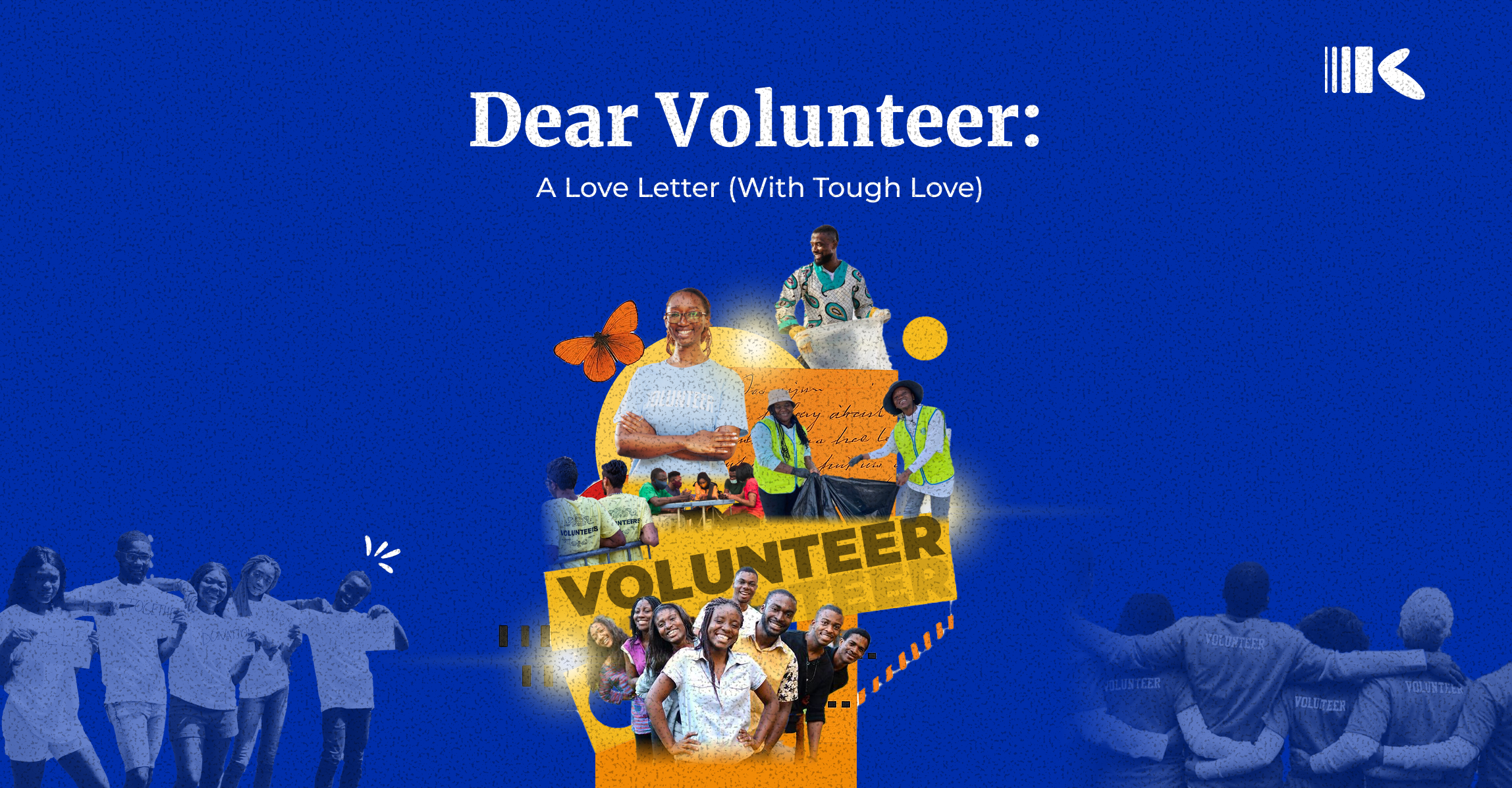Dear Volunteer, whyyyyyyyyy?
In Senior Secondary School, we were taught in Economics class that the reward for labor;the effort people contribute to the production of goods and services, is wages. And for many, this has been, and perhaps should be, the norm. Especially in this capitalist society that sometimes feels like it’s out to get us. (9-5ivers or 5-9iners, sarry, sarry.)
That being said, there’s a flip side. Sometimes, labor is not compensated. This is especially true in the not-for-profit space, where volunteerism is common. For what it’s worth, whatever your motive is, whether altruistic or self-serving, we say thank you.
On behalf of all the eyes that welled up with tears of joy, the mouths that wore smiles like the newness of day, the backs that had new clothes to cover them, and the communities that saw a glimmer of hope in their everyday skies, thank you. Thank you for pouring yourself forth and sometimes becoming a pencil in the hands of founders. Na man/woman una be!
Over the years, in doing the work, we’ve experienced founders laugh, cry, and complain. We’ve also seen volunteers experience the concept of Volunteer’s high – a rush of joy, purpose, and connection from helping others.
But the high doesn’t last forever. So,what happens on the way down? What do we call it? Volunteers Low? Volunteer’s fatigue? Altruistic Burnout?
Whatever name you dress it in, it is real, managing this, alongside volunteers, donors, and other stakeholders brings its dilemmas. Here are a few volunteer-related dilemmas founders often face. Many wouldn’t say it out loud,but these are among their biggest pain points/headaches. Trust us, we go lie for you?
- Dealing with Caspers: This isn’t even scripted or a cartoon, but people still ghost. Sometimes, volunteers reach out, seemingly eager to contribute. We add them to teams or assign tasks,and then… radio silence; they do not contribute to projects.
Did something happen? We hope you’re okay. Sometimes ghosting dey give flashback. PTSD is real, and therapy is expensive. Even if it’s you and not us, please communicate. We do not want to join the long queue of unread messages.
- Posturing vs. Doing the Actual Work: The barrier to entry is low, and we love people gaining leadership and project experience, and we encourage it. But please, do the actual work. Which is more important, the LinkedIn post or the lives we impact?
Yes, personal branding is important, we get it, but don’t overbrand to the extent our helpers(potential donors)think “we have arrived.” We need donations to do great work. Also, you cannot just create a group chat, disappear, then show up only to take pictures and claim you led the project. Let’s respect ourselves, please.
- Staying Accountable and Effective: A budget is what it is—a budget. We do not have to expend the entire funds raised for a project just because. Cost-effective ways to deliver results are encouraged. Raising funds is serious business, as it takes time to gain people’s trust. Let’s always try to be objective and effective in expenditure.
Some volunteers are biased towards selecting their friends as vendors at the expense of quality delivery. You gave your friend the catering gig, now the community is frowning that there’s too much salt. They feel we came all the way to “insalt” them. Whyyyy?
- Perception of Excess Liquidity: Some people perceive NGOs as ballers. How? We do not have the money some volunteers think we have. And where there are funds, they are earmarked for impact projects, not for the volunteers or the organization.
We are not the UN World Food Programme (WFP), nor are we a startup that has raised funds. Also, in billing, dear vendors, have mercy! Na help we dey try help too.
- Entitlement by Some Communities: Some communities feel entitled to benefits from your projects. We understand that if we don’t do it, some other group or initiatives will, and that is the goal. Sadly, some volunteers share the same sentiments.
Sir/Ma, it is help we want to help o. What do you mean we bring a goat and Seaman’s Schnapp (Premium) before we can access the community? Is it for Oblee or oblation?
- Talent Management: Deciding whether to let go quietly or build up loudly. Do we quietly ease out volunteers who are not pulling their weight, or invest more time and energy helping them grow into the capable, productive people we believe they can become?
We believe in realizing the power of people, but do the people in question also realize this too and how much is required of them? We sef no small. Here no be play play o!
Dear Volunteer, that is the end of today’s POV. We hope with these few points of ours, and having viewed some of our activities through the lens of founders, we can better navigate some of our roles in driving impact. Let’s identify the places we can improve, so that the goal of impact is realized.
